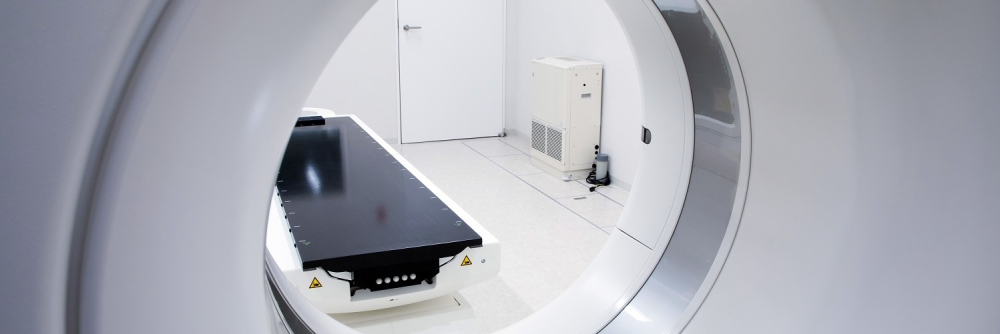CT (Computed Tomography)
We use the newest type of CT technology called 'Multislice CT' which covers the area to be examined with thinner slices and gets more detailed images in a shorter time.

Patient information
Commonly asked questions about CT scans
CT uses x-rays and a computer to produce 2D or 3D images. CT can show bones, soft tissues and blood vessels well.
You can find contact hours and phone numbers on our Radiology Department page.
We offer a wide range of diagnostic and interventional CT procedures, including:
- Brain
- Sinuses, Face
- Petrous Temporal bones
- CT upper and lower extremities (e.g. CT shoulder, hand, wrist, elbow, ankle, foot)
- Neck
- Spine
- Chest
- Abdomen and Pelvis, including multiphase hepatic, renal or pancreatic studies.
- CT Angiogram (looking at the blood vessels)
- CT Intravenous Pyelogram
- CT Intravenous Cholangiogram
- CT colonoscopy
- Nerve root injection
- Facet joint injection
- Core and Fine needle aspiration biopsy
- CT Guided interventional procedures
Yes, we require a doctor referral in order to make an appointment for you.
If you have been referred for a CT scan by your doctor and would like to make a booking, please contact Radiology at either our Alfred or our Sandringham sites.
Please inform your doctor & booking receptionist if you:
- are pregnant
- have diabetes
- have a previous allergy to contrast
- have kidney problems
- have thyroid gland problems
- weight more than 180 kilograms
You may be asked to fast immediately before the examination. Please continue to take your regular medication unless otherwise advised by your doctor.
When you arrive, you may be asked to drink special fluids for around one hour before your scan. You may need an Intravenous line inserted to administer x-ray contrast.
You will be asked to remove clothing and jewellery from the body area being scanned.
A radiographer will do your scan. An injection of intravenous contrast may be given by a radiologist or radiographer.
You will be asked to lie very still for the examination. Most CT scans take from 5 to 20 minutes.
You may be asked to hold your breath for a short time which stops the images from blurring.
You can eat and drink normally after your CT scan is finished. If you have had an interventional procedure, you will be given an information sheet at discharge with specific information about your procedure.
Your results and a report will be sent to your referring doctor. Return to your doctor to discuss these results.
